Podcast: Play in new window | Download (Duration: 29:05 — 20.1MB) | Embed
Subscribe: Apple Podcasts | Spotify | Amazon Music | Android | Pandora | iHeartRadio | JioSaavn | Podchaser | Gaana | Podcast Index | Email | TuneIn | Deezer | Anghami | RSS | More
 Episode 13 – Spiritual Accompaniment and it’s Fruits pt 2 – Begin Again: The Spiritual Legacy of Ven. Bruno Lanteri with Fr. Timothy Gallagher
Episode 13 – Spiritual Accompaniment and it’s Fruits pt 2 – Begin Again: The Spiritual Legacy of Ven. Bruno Lanteri with Fr. Timothy Gallagher
In this episode, Fr. Timothy Gallagher discusses the actual spiritual direction Ven. Bruno Lanteri offered to a laywoman, Gabriella Solaro della Margarita.
A further letter of Lanteri to Gabriella Solaro della Margarita, the third of the three letters conserved from this correspondence of spiritual direction. Here Lanteri has just learned of the death of Henry, the little child of Gabriella (possibly her youngest), and writes a note of both human and spiritual solace to the grieving mother and her two daughters, Guiseppina and Gabriella. Translated from Carteggio, III, 197-199.
Madame
I have learned from Madame your mother-in-law of how you have lost your little child Henry. In one way, as I think of this, I feel deep sorrow for what has happened to you, since no sacrifice could be more painful for you. He had such wonderful qualities that no one could help loving him, and how much more his own mother. And so, in this sense, you have every reason to feel pain for his loss, and to shed tears for him. Yet, in another way, I share with you a gladness that you that you have very surely gained a protector in heaven, who cannot fail to care for you from his heart, since he is your son. And because you love him so deeply, turn your thoughts to his eternal happiness, share in his glory, and do not imagine that you have lost him; that would not be true, since you have lost him only from sight, and not in reality. Consider that he is at your side like another angel, that he encourages you to dedicate yourself to the things of heaven, and to share in his joy; that he assures you of his efforts before the throne of the Most Holy Trinity on your behalf, as also for his father, for his brother, and for his dear sisters, to obtain for you all great and abundant graces for your eternal salvation. And so, remain in continual and loving conversation with him; speak to him about all that happens both within your heart and without, in the family, and about whatever is of importance to you; be on guard against thinking him uncaring toward you or powerless to help you, since such thoughts would be to misunderstand the immense love and the almost infinite power which each of the Blessed enjoys, with all the other divine perfections which God shares with him in the most abundant way possible.
And so, if before you had no reason to become discouraged in the service of God, so much the less is there reason now. I would add further that, if it were possible for your little Henry to feel any sorrow even now in heaven, it would be to see you discouraged and saddened, whether because of him or because of your own failings, or because of the difficulties you meet in the service of God.
This will be then the remedy for all your feelings of sadness and of fearfulness of heart: the thought that, with the grace of God and the protection of your little child Henry, you will be able to accomplish all things.
I beg you to share some part of these reflections with your respected and worthy daughters, to console them also in their great affliction for the loss of their beloved brother. Tell them that I too take part in their pain, and that I will hold them constantly present in the Holy Sacrifice of the Mass to obtain for them consolation of heart, and their spiritual growth.
I conclude this letter by blessing you all, and I am, with all the esteem and respect possible
From Bardassano, July 31, 1818
During this series, we find that the Ven. Bruno Lanteri’s life and mission contain significant spiritual relevance to nurture the hearts of today’s religious and lay faithful.
For more information on how to obtain copies of Fr. Gallaghers’s various books and audio which are available for purchase, please visit his website: frtimothygallagher.org
Visit the “Begin Again: The Spiritual Legacy of the Venerable Bruno Lanteri with Fr. Timothy Gallagher Discerning Hearts podcast” for more episodes of this series
Father Timothy M. Gallagher, O.M.V., was ordained in 1979 as a member of the Oblates of the Virgin Mary, a religious community dedicated to retreats and spiritual formation according to the Spiritual Exercises of St. Ignatius. Fr. Gallagher is featured on the EWTN series “Living the Discerning Life: The Spiritual Teachings of St. Ignatius of Loyola”.
For books on the life and teachings of Ven. Bruno Lanteri:
For the other episodes in this series check out
Fr. Timothy Gallagher’s “Discerning Hearts” page
Please visit the site dedicated to Ven. Bruno Lanteri for more information and prayer requests
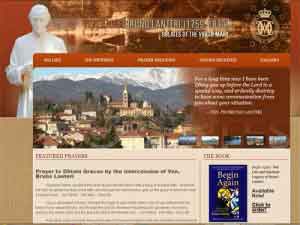
Prayer to Obtain Graces by the intercession of Ven. Bruno Lanteri
Heavenly Father, you filled the heart of your servant Bruno with a living and active faith. Grant that our lives be guided by that same faith, and, through his intercession, give us the grace of which we have so great need… Our Father. Hail Mary. Glory Be.
Jesus, uncreated Wisdom, through the hope in your merits and in your Cross, infused into the heart of your servant Bruno, and through the zeal he showed in teaching your goodness and mercy, grant us the same ardor and the grace for which we fervently ask… Our Father. Hail Mary. Glory Be.
Holy Spirit, fount of charity, through the love for God and neighbor that you enkindled in the heart of your servant Bruno, grant also to us that, living far from sin, in charity and justice, we may be worthy of the grace we humbly seek and gain the joy of heaven… Our Father. Hail Mary. Glory Be.
And you, Virgin Mother of God and our Mother, obtain from the Lord the beatification of your servant Bruno, who all his life loved you as a loyal son and zealously sought to lead others to you, and obtain for us through his intercession the grace that with great trust we ask of you… Our Father. Hail Mary. Glory Be.

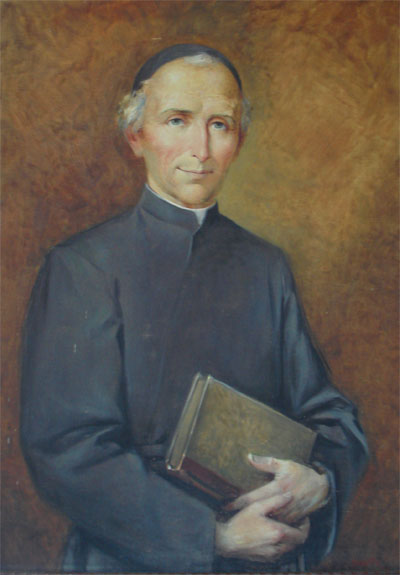
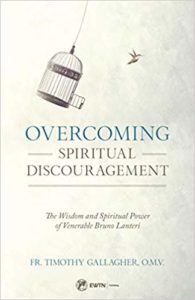
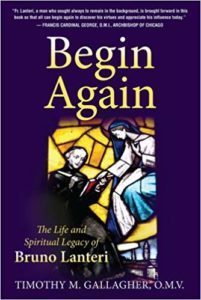
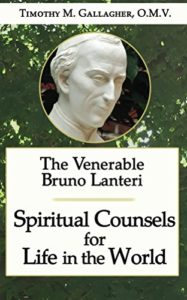


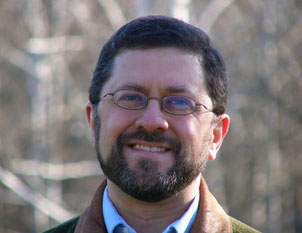 There’s nobody I enjoy spending Ash Wednesday with more than Mike Aquilina. Mike offers us rich insights on the practice of prayer, fasting and almsgiving from the perspective of the early church. He also helps us to see how we can concretely live out all three and further enrich our spiritual lives and help those around us to see Christ more fully in us and the Church. We like Mike! He’s awesome!
There’s nobody I enjoy spending Ash Wednesday with more than Mike Aquilina. Mike offers us rich insights on the practice of prayer, fasting and almsgiving from the perspective of the early church. He also helps us to see how we can concretely live out all three and further enrich our spiritual lives and help those around us to see Christ more fully in us and the Church. We like Mike! He’s awesome!


 In this episode, Dr. Lilles discusses the Fifth Mansions Chapter 3 of the “Interior Castle” which covers:
In this episode, Dr. Lilles discusses the Fifth Mansions Chapter 3 of the “Interior Castle” which covers: For other audio recordings of various spiritual classics you can visit the
For other audio recordings of various spiritual classics you can visit the 
